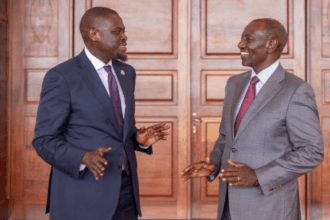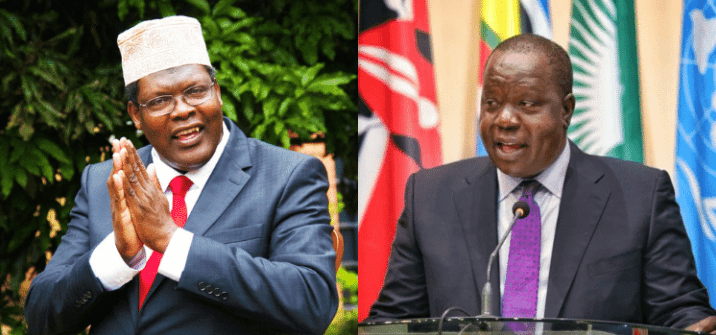
The Court of Appeal in Nairobi has overturned a 2018 High Court ruling that had found former Interior Cabinet Secretary Fred Matiang’i, ex-Immigration Principal Secretary Gordon Kihalangwa, and former Inspector-General of Police Joseph Boinnet personally in contempt of court over the controversial deportation of lawyer and politician Miguna Miguna.
In a judgment delivered on September 19, 2025, Justices Wanjiru Karanja, Lydia Achode, and Joel Ngugi emphasized the importance of procedural fairness in contempt proceedings, noting that while courts must protect their authority, contempt is “quasi-criminal in nature” and penalties against public officials require adherence to due process.
Background of the Case
The case arose from events at Jomo Kenyatta International Airport (JKIA) in March 2018, when Miguna Miguna attempted to re-enter Kenya after his controversial deportation the previous month. Despite existing court orders directing the government to allow his return and restore his travel documents, he was detained at Terminal 2, his passport was seized, and officers attempted to place him on another outbound flight.
In response, High Court Judge George Odunga, acting on an urgent application, ordered Miguna’s production in court. He later ruled that the actions of the three top officials violated Article 10 of the Constitution, which mandates adherence to the rule of law, and fined each of them KSh200,000, to be deducted directly from their salaries.
Appellate Court’s Findings
On appeal, lawyers representing Matiang’i, Kihalangwa, and Boinnet argued that:
- Justice Odunga acted on an oral application from the bar rather than a formal motion.
- The judge relied on inherent jurisdiction instead of following the then-operative Contempt of Court Act.
- The court issued substantive penal sanctions during a mention without proper notice, formal charges, or a chance for the accused to mitigate
Meanwhile, Miguna’s legal team maintained that the High Court acted lawfully and summarily to safeguard judicial authority and enforce its orders. They argued that the three officials had been duly served through various means, including public postings at JKIA and official government social media handles.
Court of Appeal’s Reasoning
After reviewing the proceedings, the appellate bench affirmed the High Court’s authority to:
- Compel the production of a detained person
- Limit audience to non-compliant parties
- Issue interim directives to ensure compliance.
However, the judges stressed that the imposition of personal fines and the constitutional violation declaration amounted to penal consequences, which required a properly instituted contempt application, served personally on the accused, and heard in full compliance with procedural law.
The Court of Appeal set aside the contempt convictions, constitutional breach declarations, and personal fines imposed on Matiang’i, Boinnet, and Kihalangwa. However, the court made no order on costs.
The bench was clear that its ruling did not excuse disobedience of court orders but focused solely on the procedural flaws in how the contempt finding had been reached.





